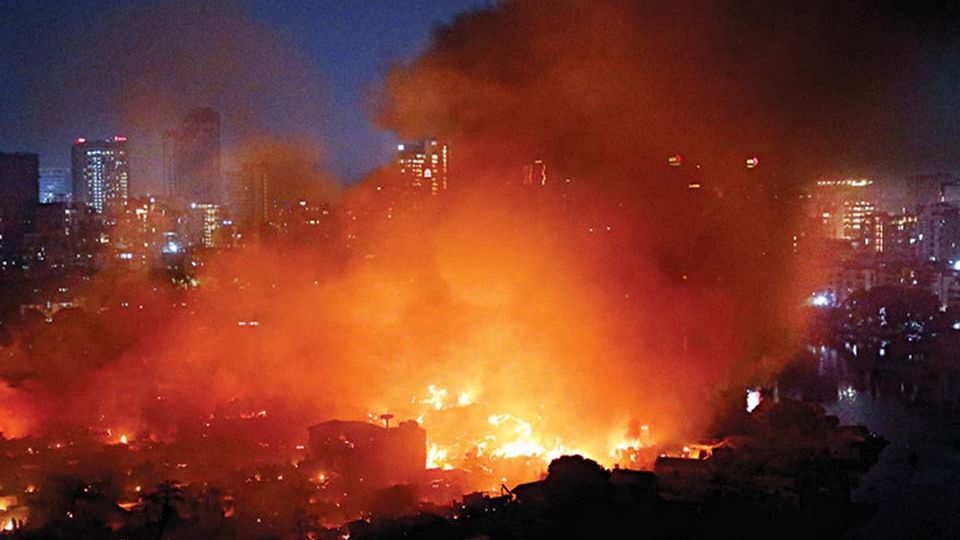November 28, 2025
DHAKA – We are shocked by yet another devastating fire in the Korail slum, the fourth major one in just two years.
Home to nearly 1.5 lakh people, Korail has always been vulnerable to fire hazards.
However, the latest incident exposed how unprepared we still are to handle them.
The fire revealed structural flaws that have remained unaddressed for years.
As flames ripped through 1,338 tightly packed shanties on November 25, around 6,000 residents lost their homes overnight.
The scenes the next morning were painfully familiar—families rummaging through charred ruins and children holding the few things they managed to save.
This tragedy highlighted the deadly structural weaknesses that make Korail so vulnerable.
The slum has one entry point, which is so narrow that even two rickshaws cannot pass at once.
It took firefighters 35 minutes just to reach the scene, while large engines could not enter at all.
Crews had to drag hoses from a distance as flames fed on wooden frames, garbage, and tangled electrical wires.
The human cost of the fire cannot be overstated.
Among the victims was Minara Begum, still searching for her mother, Hosne Ara. Elsewhere, Rima Akter stood with her eight-month-old son, recalling how a suspected electrical short circuit near her home triggered explosions of a chain of gas cylinders, forcing her to flee with her children.
This was the third fire for 50-year-old Mohammad Ismail, who wandered through the ruins with a single suitcase containing the last pieces of his belongings.
He had rebuilt twice before, only to watch his possessions turn to ashes again.
Hundreds are now living under the open sky in nearby fields and schoolyards.
They need shelter, warm clothes, food, and financial aid to meet daily needs.
The government has been providing emergency relief, but that is not enough.
It must implement a well-coordinated plan so they can rebuild their lives.
Private organisations should also step forward.
Wealthy citizens must not forget the workforce that provides them with services at homes and offices every day.
Equally importantly, the structural flaws that make firefighting so difficult in Korail must be addressed urgently.
Experts have repeatedly mentioned crucial reforms: accessible roads, safer construction materials, proper electrical maintenance, and, most importantly, community-based first-response teams trained and equipped to act before fires spread.
These recommendations must be implemented without fail. At the same time, the causes behind the frequent blazes must be investigated and addressed efficiently. Such devastating fires must not be repeated.


